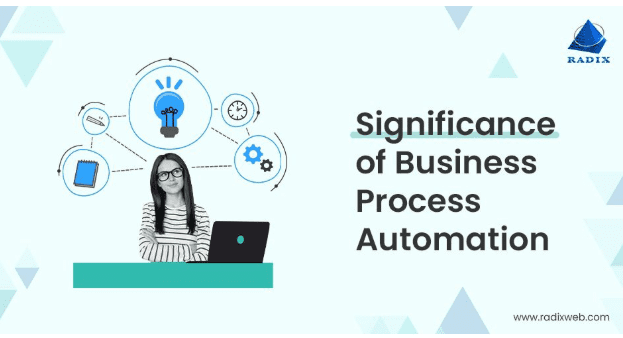In a modern rapidly evolving business environment, automation is enabling businesses to work faster and smarter, particular to companies in legal and compliance-intensive sectors.
A text to speech converter is one of the necessary tools as it will read legal documents, policies, and internal memos aloud.
This enhances access by clients, employees or blind users. With such tools, law firms and compliant businesses will be able to eliminate manual work, save time, and comply with standards much better.
Table of Contents
What Is Business Automation?
Business automation means applying technology to execute repetitive duties and procedures with little human intervention.
Within law firms and legal departments, automation takes the form of contract management software, AI-based legal research, compliance checkers and e-discovery platforms.
Such systems deal with mundane tasks such as communication with clients, reviewing documents, tracking cases, billing and filing with regulators.
It is aimed at improving productivity and reducing the possibility of human error as well as achieving legal accuracy, allowing the professionals to concentrate on the strategic, litigation, or advisory aspect.
Key Areas Where Automation Is Applied
Legal and Compliance
Contract automation, legal research, and compliance workflows are some of the tools that guarantee that legal obligations are fulfilled correctly and in a timely manner.
Document automation software helps to make sure that the templates are legally compliant and uniform.
Customer Support
AI chatbots field legal services FAQs, privacy policy and regulatory rights inquiries, and provide 24/7 assistance at minimal overhead.
Marketing
Automation platforms can manage law firm newsletters, compliance alerts, and drip campaigns for clients, all while adhering to legal advertising rules.
Finance
Automated systems help track client billing, manage trust accounts, and process invoices according to regulatory and financial laws.
Human Resources
Tools streamline hiring, training, and compliance with labor laws, workplace policies, and documentation audits.
IT & Data Privacy
Automated solutions identify data breaches, orchestrate incident response processes, and make GDPR, HIPAA, or CCPA compliant.
Benefits of Automation in Legal and Business Operations
Saves Time
Legal professionals can automate hours of document review, court form generation, or billing processes—freeing time for casework or advisory services.
Reduces Human Error
Mistakes in legal contracts or regulatory filings can lead to liability. Automation follows set rules to maintain accuracy and compliance.
Lowers Operational Costs
Less manual work means fewer billable hours wasted on admin tasks. Law firms can offer value-based pricing with higher margins.
Boosts Productivity
Lawyers and staff have more time to spend with clients giving advice or researching cases or appearing at hearings, instead of doing paperwork.
Enhances Regulatory Compliance
Automation ensures deadlines for filings, audits, and renewals are not missed, helping businesses stay on the right side of the law.
Challenges and Limitations to Consider
High Initial Costs
Law and compliance tools, especially those offering advanced AI or legal analytics—can be expensive. However, they offer long-term ROI.
Training and Legal Oversight
Employees must be trained not just on usage but on understanding the legal implications of automated outputs. Errors in automation can still have legal consequences.
Limited Scope for Judgment
Automation cannot replace legal judgment or empathy in sensitive cases. For example, tools may help draft a will, but cannot understand family nuances.
Data Security and Legal Risk
Legal automation tools process highly confidential data. Without proper cybersecurity, they may risk breaches and lawsuits under data protection laws.
Over-reliance on Tech
If law firms become too dependent on automation, they risk missing contextual red flags that only human insight can catch.
How to Choose the Right Automation Tools for Legal Use
Understand Regulatory Needs
Choose tools aligned with industry regulations—e.g., those that meet ABA guidelines, bar association rules, or industry-specific standards.
Ensure Legal Data Compatibility
Ensure the software integrates securely with your document management system, case management platforms, and client databases.
Focus on Audit Trails
Pick tools that log every action, edit, and approval. This is vital for legal compliance and internal audits.
Ease of Use with Legal Features
Look for features like e-signature integrations, legal templates, version control, and jurisdiction filters to simplify legal operations.
Ongoing Support and Updates
The legal landscape changes frequently. Choose vendors who offer updates aligned with new regulations, court mandates, or compliance rules.
Future Trends in Legal and Business Automation
AI-Powered Legal Research
AI tools will reduce research time by surfacing relevant precedents, laws, and case summaries with precision.
Hyperautomation for Legal Workflows
From intake to invoicing, entire legal workflows will become automated across practice areas like immigration, IP, or real estate law.
Voice and Legal Chat Interfaces
Voice-controlled legal bots will help clients understand contract clauses, file claims, or request legal updates using natural language.
Remote Legal Teams
Tools will continue evolving to support virtual courtrooms, remote depositions, and compliance check-ins for globally dispersed teams.
Green Compliance Automation
As ESG (Environmental, Social, Governance) regulations grow, automation will help firms track and report sustainability efforts to avoid legal penalties.
Conclusion
Automation in the contemporary legal and business world is not all about speed, but rather the ability to remain compliant, accurate and competitive.
Whether it is a law firm or legal operations within a corporate environment, intelligent automation lowers risk, increases productivity and adheres to changing legal requirements.
In order to leverage it, companies should cautiously assess tools regarding their legal appropriateness, educate their workforce adequately, and never overlook human discretion that brings the law into effect.
A proper combination of technological and legal expertise can make automation change the way business is conducted-legally and effectively.


